Filter by
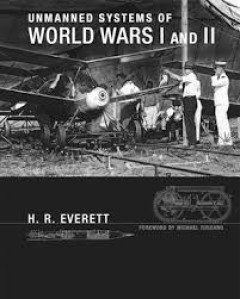
Unmanned Systems of World Wars I and II
"Foreword by Michael Toscano"--Cover."Military drones have recently been hailed as a revolutionary new technology that will forever change the conduct of war. And yet the United States and other countries have been deploying such unmanned military systems for more than a century. Written by a renowned authority in the field, this book documents the forgotten legacy of these pioneering efforts, …
- Edition
- -
- ISBN/ISSN
- 0262331772
- Collation
- 1 online resource (757 pages) :illustrations, map.
- Series Title
- -
- Call Number
- -
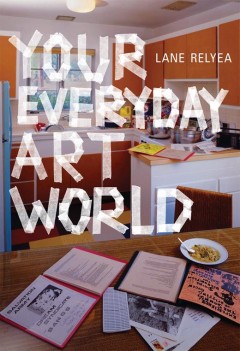
Your Everyday Art World
A critic takes issue with the art world's romanticizing of networks and participatory projects, linking them to the values of a globalized, neoliberal economy. Over the past twenty years, the network has come to dominate the art world, affecting not just interaction among art professionals but the very makeup of the art object itself. The hierarchical and restrictive structure of the museum …
- Edition
- -
- ISBN/ISSN
- 9780262316927
- Collation
- -
- Series Title
- -
- Call Number
- -
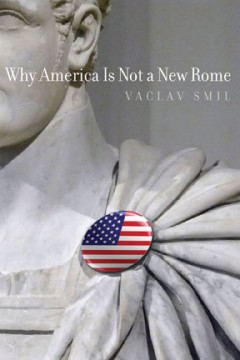
Why America Is Not a New Rome
An investigation of the America-Rome analogy that goes deeper than the facile comparisons made on talk shows and in glossy magazine articles.America's post-Cold War strategic dominance and its pre-recession affluence inspired pundits to make celebratory comparisons to ancient Rome at its most powerful. Now, with America no longer perceived as invulnerable, engaged in protracted fighting in Iraq…
- Edition
- -
- ISBN/ISSN
- 9780262283885
- Collation
- -
- Series Title
- -
- Call Number
- -
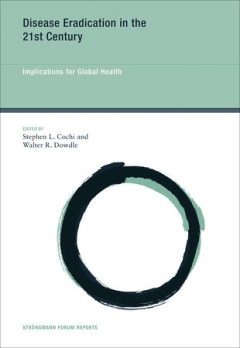
Disease eradication in the 21st century :implications for global health
This title takes a fresh look at the evolving concepts of disease eradication, influenced by scientific advances, field experience, societal issues, and economic realities.OCLC-licensed vendor bibliographic record.
- Edition
- -
- ISBN/ISSN
- 9780262304207
- Collation
- 1 online resource (xi, 319 pages) :illustrations (some color), maps (some color).
- Series Title
- -
- Call Number
- -

An Infinity of Worlds: Cosmic Inflation and the Beginning of the Universe
In the beginning was the Big Bang: an unimaginably hot fire almost fourteen billion years ago in which the first elements were forged. The physical theory of the hot nascent universe—the Big Bang—was one of the most consequential developments in twentieth-century science. And yet it leaves many questions unanswered: Why is the universe so big? Why is it so old? What is the origin of structu…
- Edition
- -
- ISBN/ISSN
- 9780262368421
- Collation
- -
- Series Title
- -
- Call Number
- -
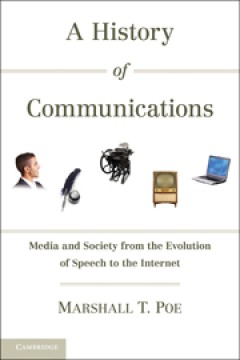
A History of Communications Media and Society from the Evolution of Speech t…
A History of Communications advances a theory of media that explains the origins and impact of different forms of communication - speech, writing, print, electronic devices and the Internet - on human history in the long term. New media are 'pulled' into widespread use by broad historical trends and these media, once in widespread use, 'push' social institutions and beliefs in predictable direc…
- Edition
- -
- ISBN/ISSN
- 9780511976919
- Collation
- -
- Series Title
- -
- Call Number
- -
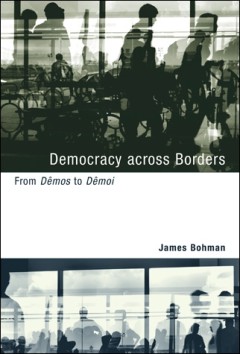
Democracy across borders: from Demos to Demoi
An innovative conception of democracy for an era of globalization and delegation of authority beyond the nation-state: rule by peoples across borders rather than by "the people" within a fixed jurisdiction.OCLC-licensed vendor bibliographic record.
- Edition
- -
- ISBN/ISSN
- 9780262268943
- Collation
- 1 online resource (viii, 219 pages).
- Series Title
- -
- Call Number
- -
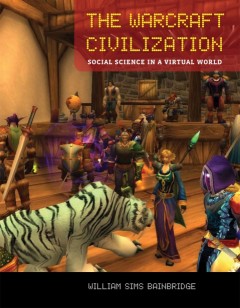
The Warcraft civilization: Social science in a virtual world
From the Publisher: World of Warcraft is more than a game. There is no ultimate goal, no winning hard, no princess to be rescued. WoW contains more than 5,000 possible quests, games within the game, and encompasses hundreds of separate parallel realms (computer serves, each of which can handle 4,000 players simultaneously). WoW is an immerse virtual world in which characters must cope in a dang…
- Edition
- -
- ISBN/ISSN
- 9780262267588
- Collation
- 1 online resource (248 pages) :illustrations
- Series Title
- -
- Call Number
- -
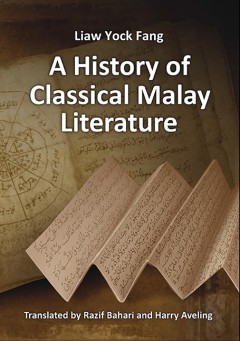
A History of Classical Malay Literature
This is a detailed, narrative-based history of Classical Malay Literature.It covers a wide range of Malay texts, including folk literature; the influence of the Indian epics and shadow theatre literature; Panji tales; the transition from Hindu to Muslim literary models; Muslim literature; framed tales; theological literature; historical literature; legal codes; and the dominant forms of poetry,…
- Edition
- -
- ISBN/ISSN
- 9789814459891
- Collation
- -
- Series Title
- Local History and Memoirs
- Call Number
- -
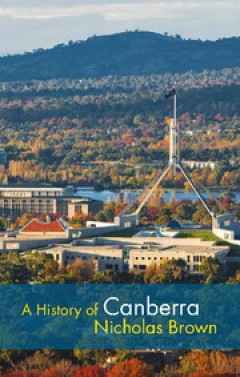
A History of Canberra
Designed as an 'ideal city' and emblem of the nation, Canberra has long been a source of ambivalence for many Australians. In this charming and concise book, Nicholas Brown challenges these ideas and looks beyond the clichés to illuminate the unique, layered and often colourful history of Australia's capital. Brown covers Canberra's selection as the site of the national capital, the turbulent …
- Edition
- -
- ISBN/ISSN
- 9781139196260
- Collation
- -
- Series Title
- -
- Call Number
- -
 Computer Science, Information & General Works
Computer Science, Information & General Works  Philosophy & Psychology
Philosophy & Psychology  Religion
Religion  Social Sciences
Social Sciences  Language
Language  Pure Science
Pure Science  Applied Sciences
Applied Sciences  Art & Recreation
Art & Recreation  Literature
Literature  History & Geography
History & Geography